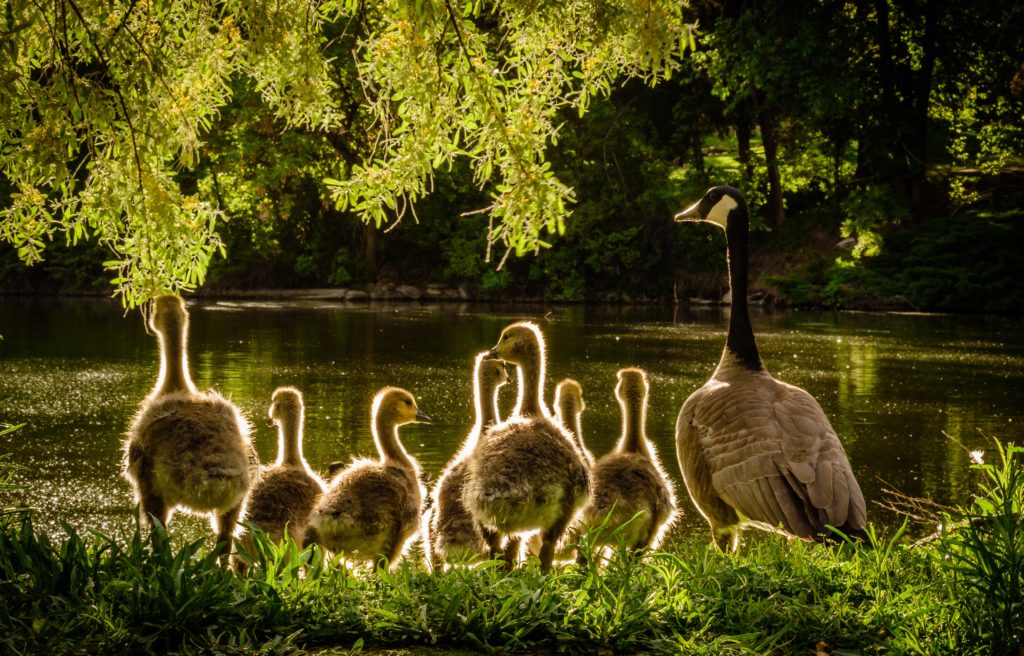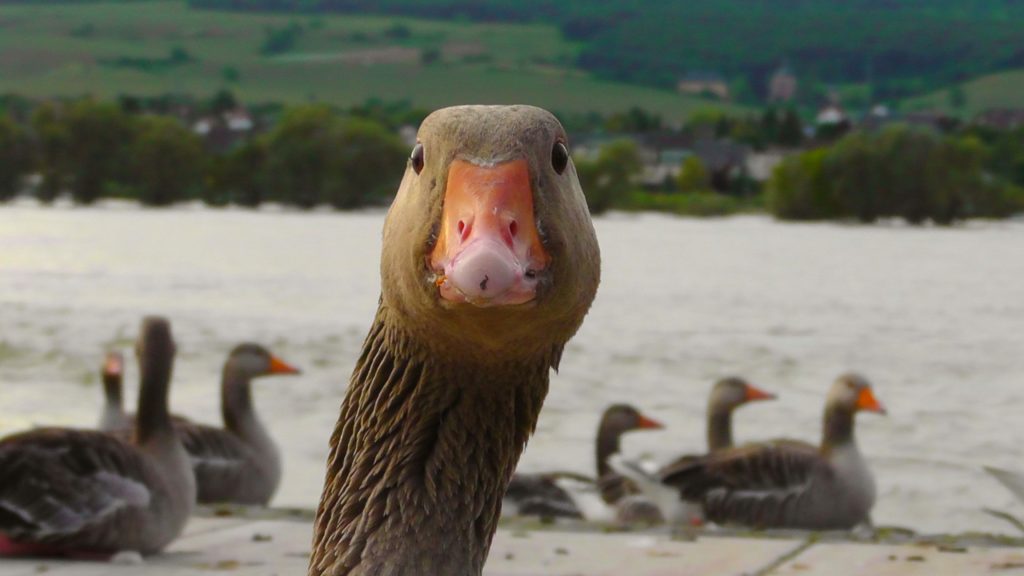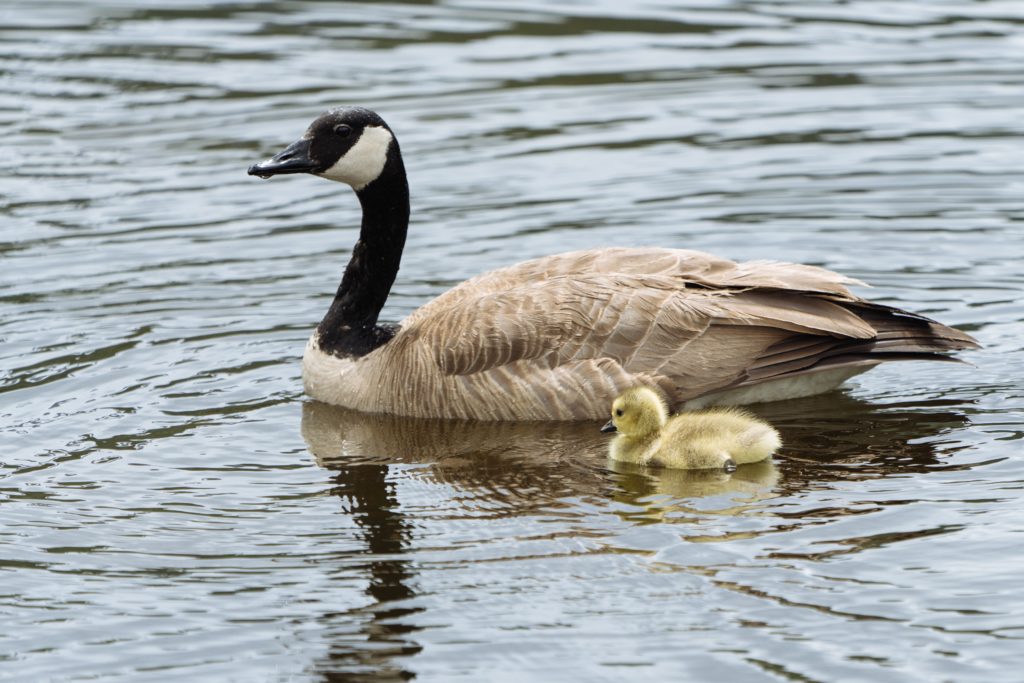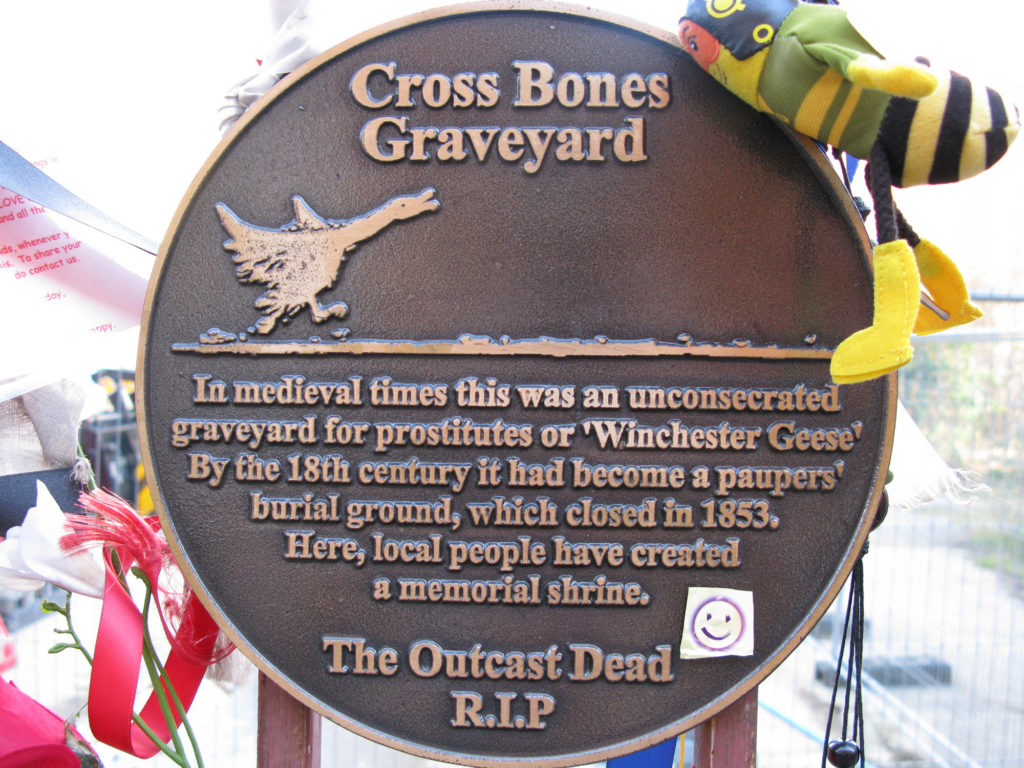My favourite thing about geese… is the etymologies of all the phrases relating to geese. There’s so many, and they’re all amazing. I started reading about one, then – silly goose that I am – found another, and another, and another…

For example:
- Barnacle geese are so-called because medieval Europeans believed that they grew out of a kind of barnacle called a goose barnacle, whose shell pattern… kinda, sorta looks like barnacle goose feathers? Barnacle geese breed on remote Arctic islands and so people never saw their chicks, which – coupled with the fact that migration wasn’t understood – lead to a crazy myth that lives on in the species name to this day. Incidentally, this strange belief led to these geese being classified as a fish for the purpose of fasting during Lent, and so permitted. (This from the time period that brought us the Vegetable Lamb of Tartary, of course. I’ve written about both previously.)
- Gooseberries may have a similar etymology. Folks have tried to connect it to old Dutch or Germanic words, but inconclusively: given that they appear at the opposite end of the year to some of the migratory birds goose, the same kind of thinking that gave us “barnacle geese” could be seen as an explanation for gooseberries’ name, too. But really: nobody has a clue about this one. Fun fact: the French name for the fruit is groseille à maquereau, literally “mackerel currant”!
- A gaggle is the collective noun for geese, seemingly derived from the sound they make. It’s also been used to describe groups of humans, especially if they’re gossiping (and disproportionately directed towards women). “Gaggle” is only correct when the geese are on the ground, by the way: the collective noun for a group of airborne geese is skein or plump depending on whether they’re in a delta shape or not, respectively. What a fascinating and confusing language we have!
- John Stephen Farmer helps us with a variety of goose-related sexual slang though, because, well, that was his jam. He observes that a goose’s neck was a penis and gooseberries were testicles, goose-grease is vaginal juices. Related: did you ever hear the euphemism for where babies come from “under a gooseberry bush“? It makes a lot more sense when you realise that gooseberry bush was slang for pubic hair.

- An actor whose performance wasn’t up to scratch might describe the experience of being goosed; that is – hissed at by the crowd. Alternatively, goosing can refer to a a pinch on the buttocks possibly in reference to geese pecking humans at about that same height.
- If you have a gander at something you take a good look at it. Some have claimed that this is rhyming slang – “have a look” coming from “gander and duck” – but I don’t buy it. Firstly, why wouldn’t it be “goose and duck” (or “gander and drake“, which doesn’t rhyme with “look” at all). And fake, retroactively-described rhyming roots are very common: so-called mockney rhyming slang! I suspect it’s inspired by the way a goose cranes its neck to peer at something that interests it! (“Crane” as a verb is of course also a bird-inspired word!)
- Goosebumps might appear on your skin when you’re cold or scared, and the name alludes to the appearance of plucked poultry. Many languages use geese, but some use chickens (e.g. French chair de poule, “chicken flesh”). Fun fact: Slavic languages often use anthills as the metaphor for goosebumps, such as Russian мурашки по коже (“anthill skin”). Recently, people talk of tapping into goosebumps if they’re using their fear as a motivator.
- A tailor’s goose is a traditional kind of iron so-named for the shape of its handle.
- The childrens game of duck duck goose is played by declaring somebody to be a “goose” and then running away before they catch you. Chasing – or at risk of being chased by! – geese is common in metaphors: if somebody wouldn’t say boo to a goose they’re timid. A wild goose chase (yet another of the many phrases for which we can possibly thank Shakespeare, although he probably only popularised this one) begins without consideration of where it might end up.

- If those children are like their parents, you might observe that a wild goose never laid a tame egg: that traits are inherited and predetermined.
- Until 1889, the area between Blackfriars and Tower Bridge in London – basically everything around Borough tube station up to the river – was considered to be outside the jurisdiction of both London and Surrey, and fell under the authority of the Bishop of Winchester. For a few hundred years it was the go-to place to find a prostitute South of the Thames, because the Bishop would license them to be able to trade there. These prostitutes were known as Winchester geese. As a result, to be bitten by a Winchester goose was to contract a venereal disease, and goosebumps became a slang term for the symptoms of some such diseases.
- Perennial achillea ptarmica is known, among other names, as goose tongue, and I don’t know why. The shape of the plant isn’t particularly similar to that of a goose’s tongue, so I think it might instead relate to the effect of chewing the leaves, which release a spicy oil that might make your tongue feel “pecked”? Goose tongue can also refer to plantago maritima, whose dense rosettes do look a little like goose tongues, I guess. Honestly, I’ve no clue about this one.
- If you’re sailing directly downwind, you might goose-wing your sails, putting the mainsail away from the wind and the jib towards it, for balance and to easily maintain your direction. Of course, a modern triangular-sailed boat usually goes faster broad reach (i.e. at an angle of about 45º to the wind) by enough that it’s faster to zig-zag downwind rather than go directly downwind, but I can see how one might sometimes want to try this anatidaetian maneuver.

Geese make their way all over our vocabulary. If it’s snowing, the old woman is plucking her
goose. If it’s fair to give two people the same thing (and especially if one might consider not doing so on account of their sex), you might say that what’s good
for the goose is good for the gander, which apparently used to use
the word “sauce” instead of “good”. I’ve no idea where the idea of cooking someone’s goose comes from, nor why anybody thinks that a goose step
march might look anything like the way a goose walks waddles.
With apologies to Beverley, whose appreciation of geese (my take, previously) is something else entirely but might well have got me thinking about this in the first instance.